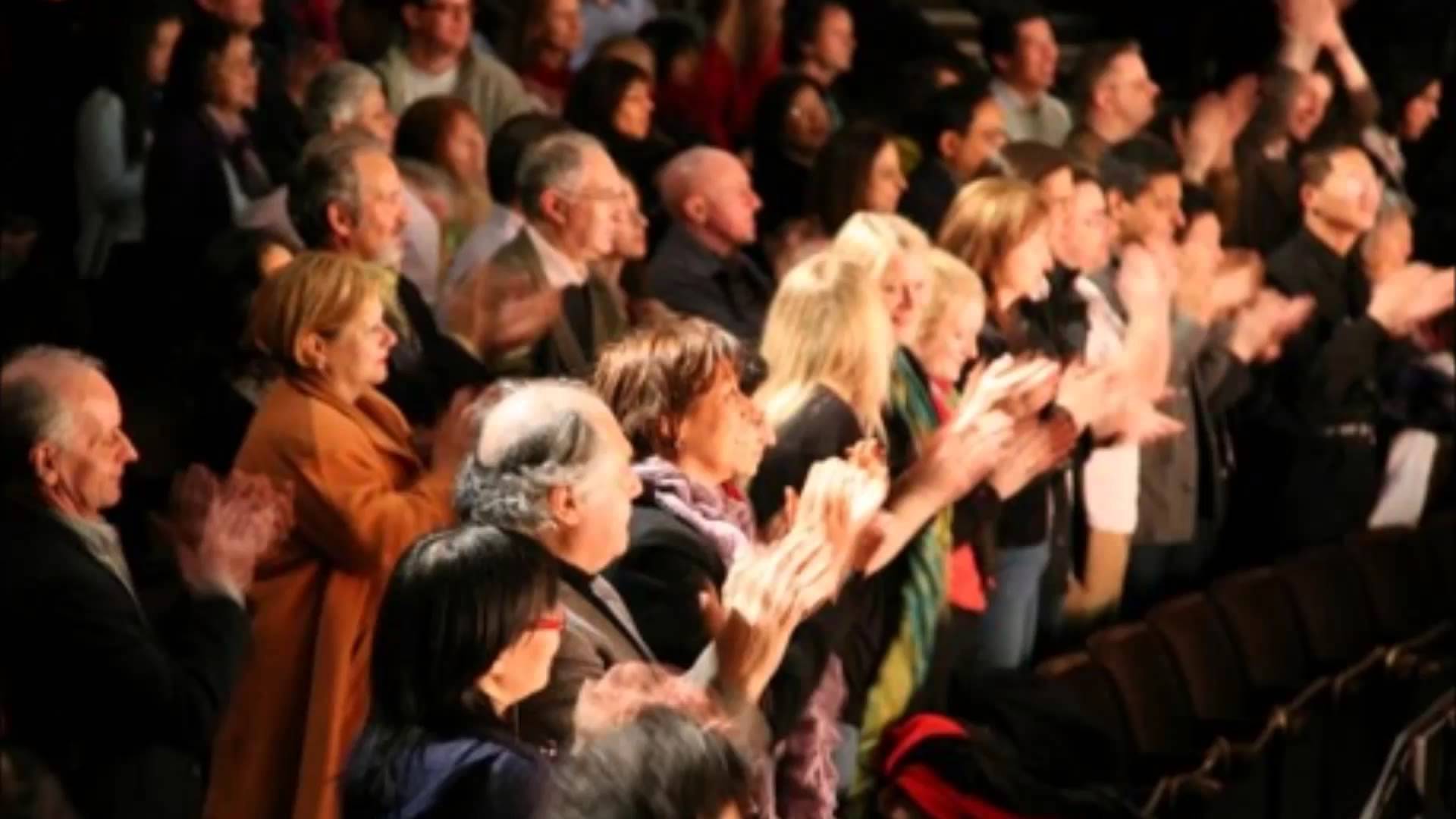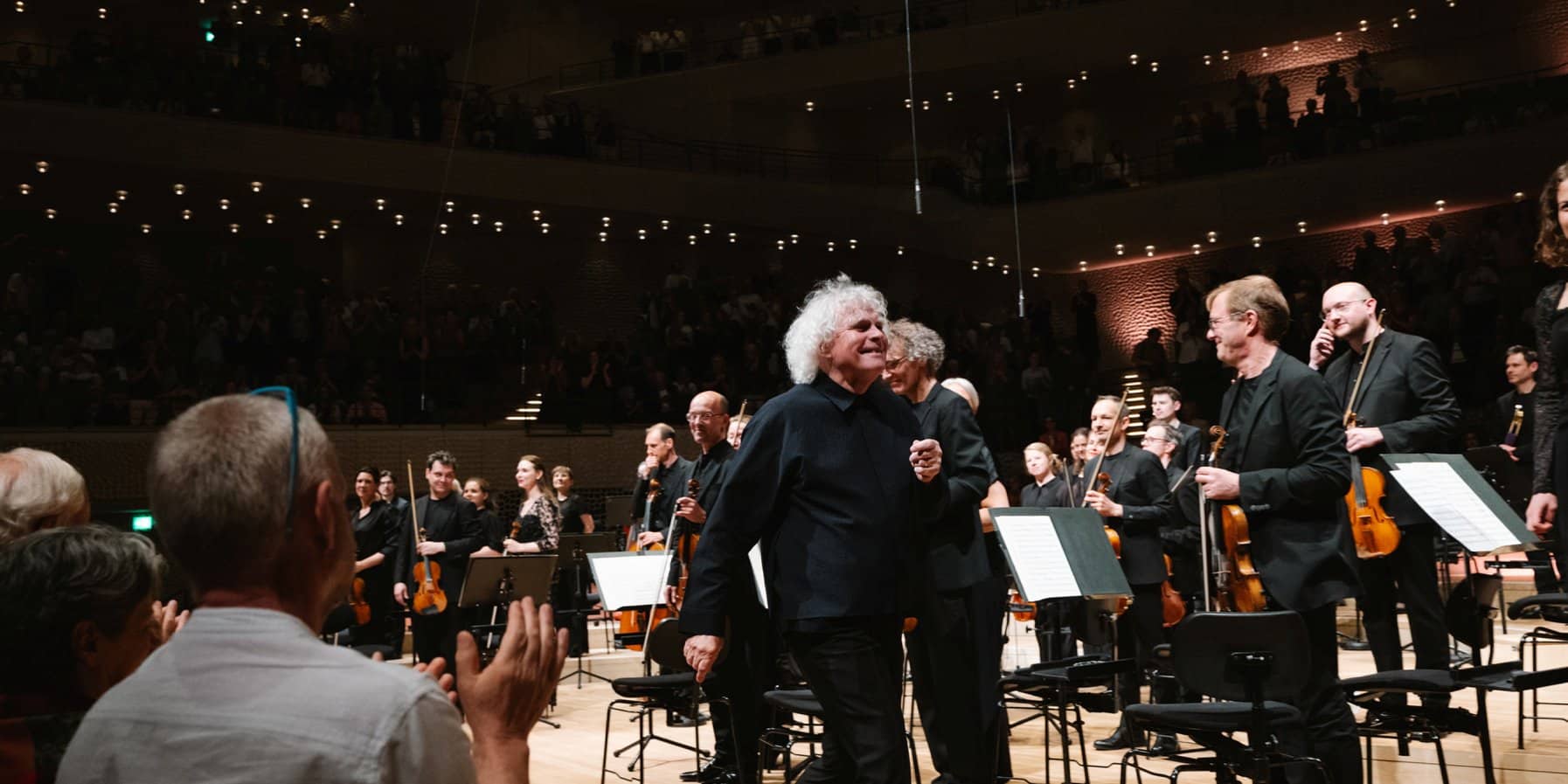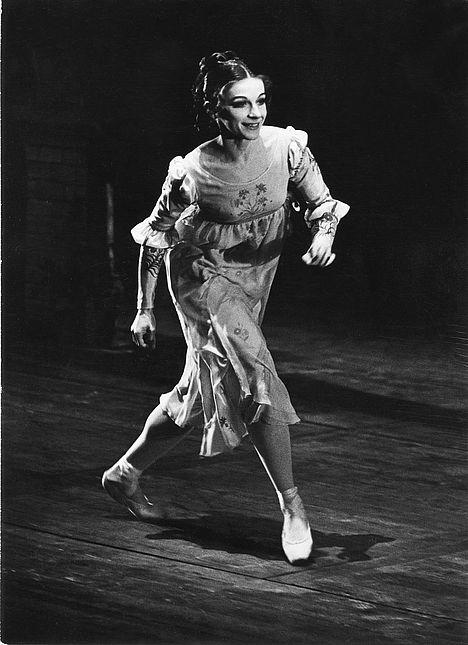A test of your classical tastes
mainThe Oslo Philharmonic has launched an online tool to help listeners work out exactly which music they like most.
They say: ‘we designed a guide where they can listen to excerpts from a broad range of the music we play, decide what they like and why, and get a report based on their answers.’
You can test your prejudices right here.







“Internal Server Error
Undefined index: rating”
after rating all 30 excerpts and requesting the report.
Dear Ravi Narasimhan,
we’re really sad you encountered an error in the guide! Our developer has just checked your report and we think we have found a way to solve the problem (we’ve only seen this error once before in hundreds of reports). If you send us an email on post(at)ofo.no, we’ll send you your report when it’s fixed. It would be great if you could include information about the device and browser you were using, as it might help us solve the problem permanently.
Best wishes,
Fred-Olav Vatne
web editor, Oslo Philharmonic
Thanks! I have done so.
That was great fun!!!
It was certainly not bad made. The selection of music clips was also above average.
The problem is that it doesn’t provide much analysis and insight to the test result. They just want to sell you which of their up-coming concerts will have the music you like. Yes, the result shows you pay more attention to harmony, rhythm and melody when listening to music. But, come on, do you have something even more worthless to say?
Dear Analeck Kram-Hammerbauer,
thanks a lot for your honest feedback about the Orchestral Music Guide!
I just wanted to check if you noticed the links to articles about each of the periods and keywords in the report? I’ll admit it’s easy to overlook them. In these articles we would like to give the users an opportunity to go deeper and explore classical music further, and we provide a wide range of listening tips, also from outside our current concert season.
Best,
Fred-Olav Vatne
web editor, Oslo Philharmonic
I did play around and click through your web app a little bit because I found it quite appealing at the first sight, otherwise I might not even be able to finish the test, since 30 clips in exactly the same format is just a bit too long and monotonous. To be honest, I got bored and became impatient quickly after the first 15 clips. I think the majority of the younger generations will feel exactly the same. You may consider subdivide the test into groups, which cover different aspects of the music. Let me put it this way: If you play a game, you don’t want playing the same scene from the beginning till the end, right?
But the major problem is that there is no “Aha! Effect”. The user do expect something not obvious or even unknown to themselves. If I clicked “melody” and “harmony” 25 times during the test, then I won’t get too excited to see a test result simply showing me this basic statistics, right? Furthermore, the summary report is too impersonal, there are no humor and wit, nothing speaks the language of our time. I would rather see a test result telling me I am a stupid internet troll than reading a long text about the brief history of the music after 1900. People do expect to be told what “type” of listener they are after this test, no matter how stereotypical it might be. Such test should be fun primarily, otherwise people won’t share it with their friends.
Marketing for new season programs is totally alright and legitimate. I sincerely wish more orchestras would try something innovative and inspiring to promote their concerts. Your efforts will get noticed and eventually pay off. Don’t get confused and frustrated by those who claim everything was just better in the past, or “we don’t have to change anything”, “the new audience nowadays are all idiots” etc. These kinds of voice may be still loud, but thank god they will die away soon in the near future.
Keep trying. You can do it better.
Agree completely — it was a very good concept, poorly (or to be specific, weakly) executed. But let’s cut them a little slack here: to do this right would require the resources of a Google or an IBM — that is, this is a job for cutting-edge AI, a set of fairly deep algorithmic functions to bring a complex data set like this to life and meaning.
Good orchestra, though.
Analeck and Brian,
thanks a lot for your comments. We’re very eager to continue improving the guide, and your insights (and other comments here) are really helpful. And to all the Google execs and AI virtuosos reading this blog: you know where to find us.
Dear Ravi Narasimhan,
we’re really sad you encountered an error in the guide! Our developer has checked your report and we have found a way to solve the problem (we’ve only seen this error once before in hundreds of reports). If you send us an email on post(at)ofo.no, we’ll send your report to you. It would be great if you could include information about the device and browser you were using, as it might help us solve the problem permanently.
Best,
Fred-Olav Vatne
web editor, Oslo Philharmonic
As marketing tools go, this one is more interesting than most. And they had Scriabin in there which is a great thing.
The problem with this ‘test’ is that the fragments on offer had already been selected and do not represent the periods which are then later-on categorised in the ‘report’. So, when you offer an abundance of mood fragments, your preference will likely to be for mood music. Etc.
Another problem is, that such ‘polls’ appear to function like a business wanting to know the client’s tastes, as to be able to adapt to them, as if classical music is a commodity in a market place. To some extent, it is, but the whole point of having something like art music, is to protect it from ‘the market’, since the nature of the art form is in itself not commercial. A matter of priorities.
In a period where populism and an egalitarian world view, which considers art music as a mere luxury for the (leftist) happy few, and with an undeserved privilege status, threaten classical music’s existence, it is not very wise to embark upon such undertakings. What if in the near future audiences prefer to hear film music and the music accompanying TV commercials and video games?
It is not only Norway suffering from this affliction:
http://subterraneanreview.blogspot.nl/2017/05/high-culture-as-commodity.html
You cannot support open borders and unfettered, non-discriminatory, unscreened immigration and then advocate for a continuation of European culture – or any ‘culture’ for that matter. The whole thing continues to be stupidity on a grand industrial scale. May I suggest this book:
“The Strange Death of Europe: Immigration, Identity, Islam” by Douglas Murray.
No, you may not suggest that book. What the heck do borders and Islam have to do with this musical pop quiz from the Oslo Philharmonic??? Try to stay on topic.
I rather enjoyed this. There were some interesting sounding excerpts that have already caused me to order some cds. It also confirmed something else I knew: I mostly enjoy music written from 1900 – present with little interest in pre-1850 music. Not a scientific poll to be sure, but interesting nonetheless. I wish my local band would dare to try some Saariaho, Rehnqvist, or even Vaughan Williams for a change!
This was fun. Of course knowing the music helped – and I guessed Saariaho correctly!
Saw Oslo PO many years ago in SF when they played Shostakovich 7. They made a great noise and everyone had a ball onstage.
Here in mid-Wales we are enjoying the Presteigne Festival, which promotes new music, and commissions a lot of it. We have just listened to wonderful new pieces by Huw Watkins, Cheryl Francis Hoad,Hellen Grime, Cecilia McDowall, Sally Beamish, Edward Gregson…………….. and many more – really many more, this year – too many to list in this short note. But the question is, how would this “tool” help this new music?
What if I like the work but wasn’t crazy about that tempo (the Beethoven violin concerto)? Or I like the brief excerpt of something else you played but think it’s played to death within the full work?
That wasn’t actually Ehnes in the Beethoven recording, was it? I’ve heard him play it live and I don’t remember his tempo being that slow.
Anyway, thanks. It was fun giving all of those a listen.
It is not Ehnes. There’s a credits page for the recordings: https://ofo.no/en/guide/recordings
I listened to all 30 selections. Enjoyed it immensely and was impressed by the idea. Would have liked a few other choices such as Majestic. Good way to expose people to various types of composition. Wish other orchestras would adopt this idea. Wish I could go to Oslo. Who knows. Maybe i will. Aloha!
Thanks a lot for your feedback!
You will be welcome in Oslo!
Best,
Fred-Olav Vatne
web editor, Oslo Philharmonic